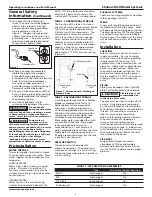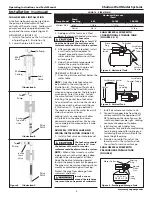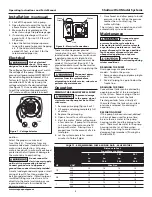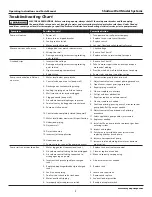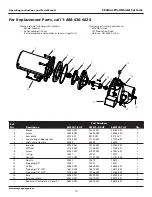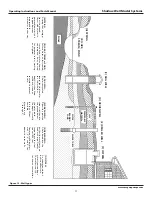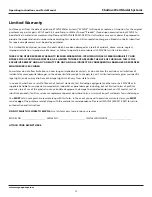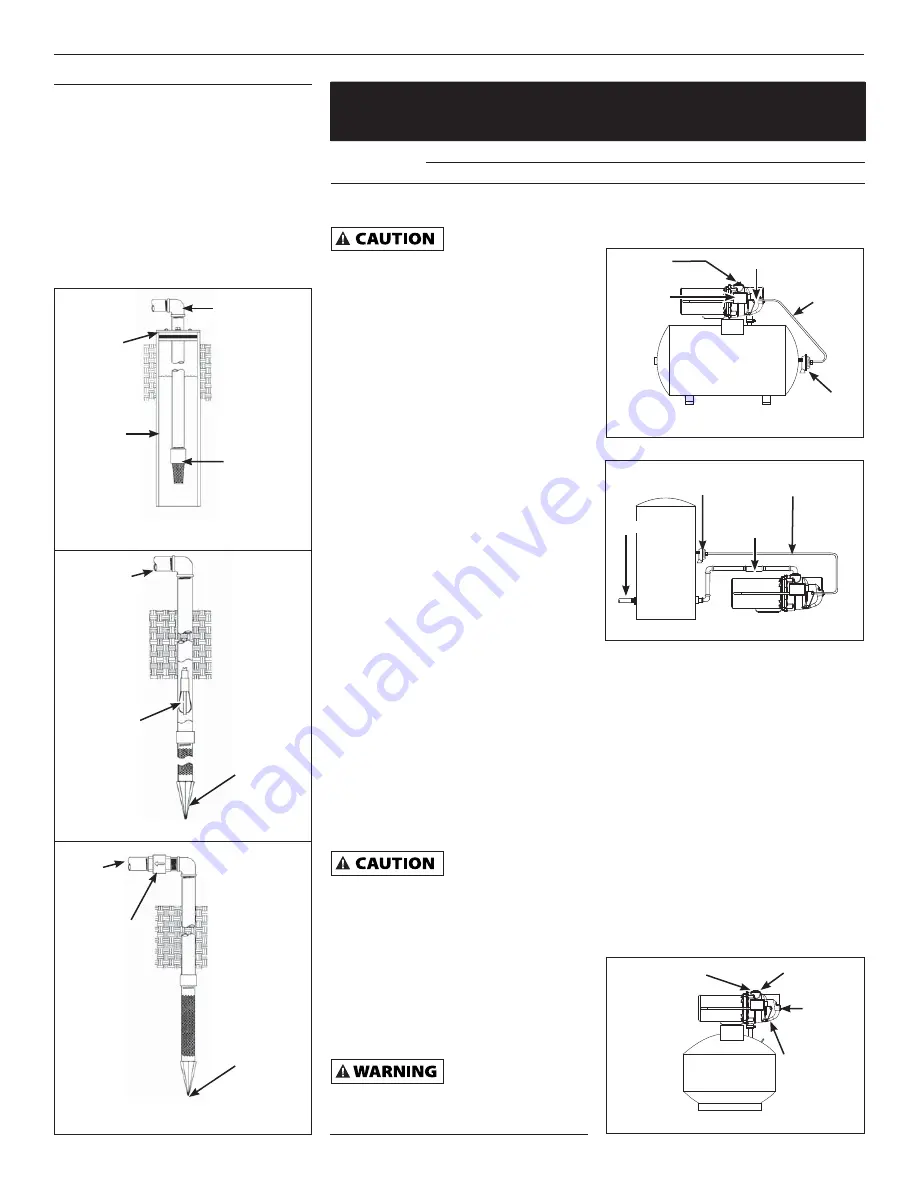
SHALLOW WELL PUMP WITH
CONVENTIONAL STORAGE TANK
(FIGURES 4 & 5)
1. Install air volume control on tank.
2. Connect the copper tube from the air
volume control to the uppermost 1/8”
NPT opening on the side of pump. Be
sure the connections are tight. Leaking
can cause the pump not to prime.
3. Install a valve and an isolator hose
between the tank and the house plumbing
to aid in pump removal for servicing and
for reducing the noise transmitted to the
house thrugh the piping.
4. Provide a hose bib (faucet) at the
lowest point in the system to drain
the system for service or storage.
SHALLOW WELL PUMP WITH
PRECHARGED STORAGE TANK
(FIGURE 6)
3
3. Add pipe until the foot valve is 5 feet
below the lowest anticipated water level.
The foot valve
should be at least 18”
from the bottom of the well or sand or
sediment could be drawn into the system.
4. After proper depth is reached, install
a well seal or pitless adapter to
support pipe and prevent surface
water and other contaminants from
entering well.
5. Slope the horizontal pipe upward
toward the pump to eliminate
trapping air. Sloping the pipe will
also aid in priming the pump.
DRIVEN WELL (FIGURE 13)
1. Drive the point several feet below the
water table.
NOTE:
A packer type foot valve can
be installed in the well (Figure 3,
Illustration B). This type of foot valve
allows the well to be fi lled with water
when priming and makes the inlet pipe
much easier to test for leaks. Follow
the manufacturer’s instructions when
installing the packer type foot valve.
As an alternative, an in-line check valve
can be used with a driven well (Figure
3, Illustration C). The pipe between
the check valve and the water level will
always be under a vacuum.
Leaking joints or couplings will allow
air to leak into the pipe and cause
abnormal pump operation. Make sure
to use pipe joint compound on all male
pipe threads.
DUG WELL, CISTERN, LAKE AND
SPRING INSTALLATION (FIGURE 13)
1. Install a foot valve on inlet pipe and
lower into water.
The foot valve should
be at least 18” from
the bottom of the well or sand or
sediment could be drawn into the system.
NOTE:
When a lake is used as a water
supply, make sure the inlet pipe is deep
enough to be submerged at all times.
Slope the horizontal piping upward
toward the pump to prevent trapping air.
The pipe must be removed during winter
months or protected against freezing.
Protect the pipe from damage from
swimmers and boats.
Install a screen
around the inlet pipe
to prevent the entrapment of swimmers.
www.waynepumps.com
Operating Instructions and Parts Manual
Shallow Well Model Systems
Installation
(Continued)
To Pump
Well
Seal
Foot
Valve
Well
Casing
To
Pump
To
Pump
Drive
Point
Drive
Point
Incline
Check
Valve
Packer
Type Foot
Valve
Illustration A
Illustration C
Illustration B
Figure 3
CHART 2 - PIPE SIZING
Pump Model
Pump
Opening
Horizontal Distance
(Feet)
0-25
26-100
100-300
Shallow Well
Inlet
1-1/4 in.
1-1/2 in.
2 in.
Outlet
3/4 in.
1
1-1/4 in.
Figure 5 - Vertical Tank
Outlet
Air Volume
Control Tubing
Hose
Coupling
Air Volume Control
Figure 6 - Precharged Storage Tank
Motor Outlet
Priming
Plug
Nozzle
Clean
Out
Drain
Fitting
28-30 psi
3/4 HP & 1 HP
SHALLOW WELL INSTALLATION
A shallow well pump can be used when
the pump is located within 25 feet
vertically of the water level. Shallow well
pumps have only one pipe between the
pump and the water supply (Figure 3).
DRILLED WELL (FIGURE 13)
1. Install a foot valve on the first section
of pipe (Figure 3, Illustration A).
2. Lower the pipe into the well.
Figure 4 - Horizontal Tank
Air Volume
Control
Tubing
To Suction
Air
Volume
Control
Pressure
Switch
Prime
Plug
Summary of Contents for Shallow well model
Page 6: ...6 Operating Instructions and Parts Manual Shallow Well Model Systems www waynepumps com Notes...
Page 7: ...7 Operating Instructions and Parts Manual Shallow Well Model Systems Notes www waynepumps com...
Page 8: ...8 Operating Instructions and Parts Manual Shallow Well Model Systems www waynepumps com Notes...


